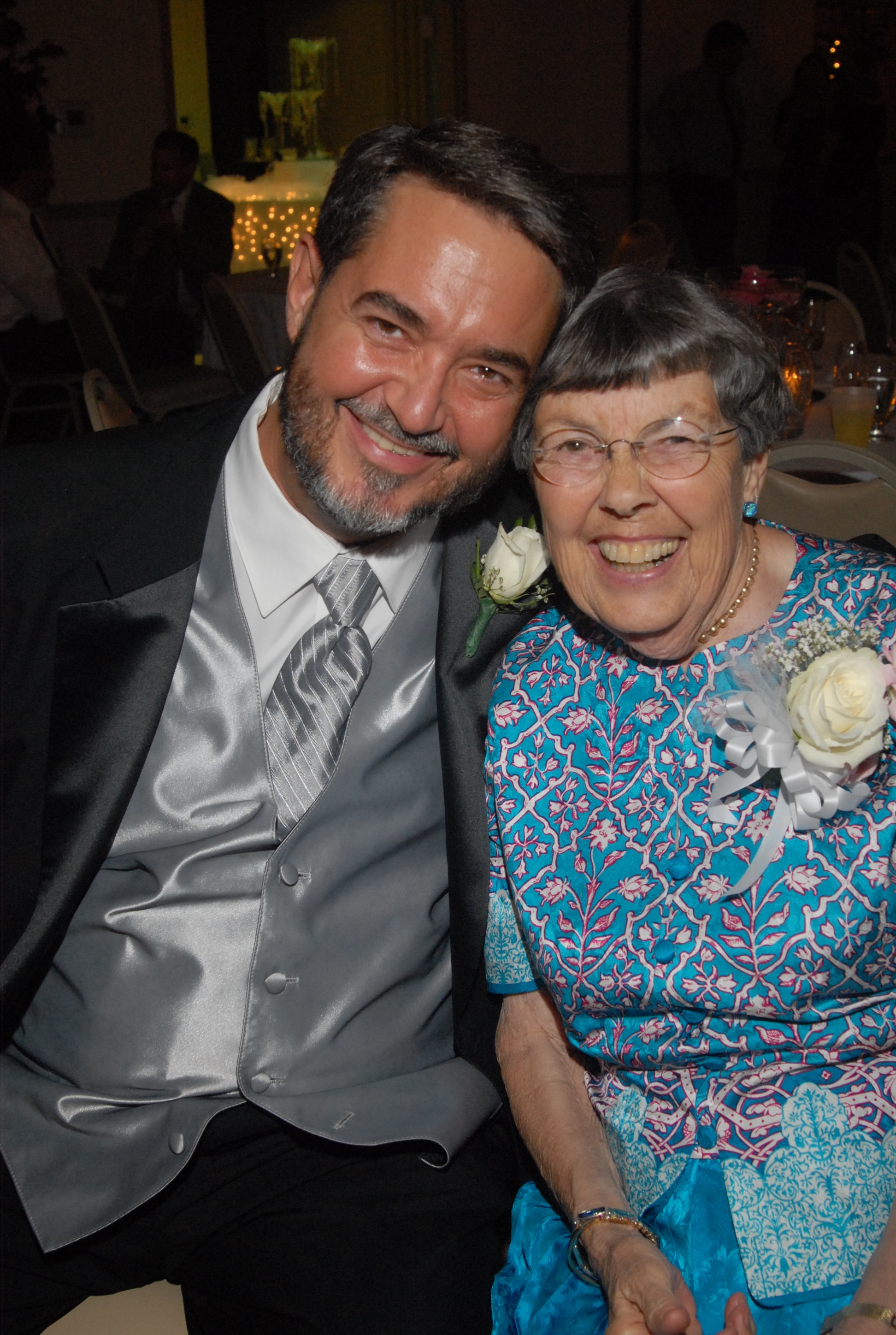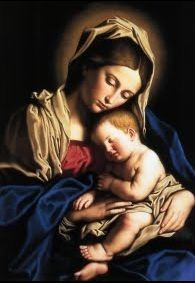
I wonder if even the greatest saints ever outgrow the desire to please their moms—or the pleasure when they succeed at doing so.
Not long ago I discovered that I had outgrown neither the wish nor the feeling of satisfaction.
My mother was proud enough of my accomplishments. I knew that. And I heard, every now and then, secondhand and thirdhand, of her bragging about my latest book or TV show.
Firsthand … I heard very little. Between us there was the matter of religious difference. When I was growing up, our family was Presbyterian, though our churchgoing was irregular. I became a Catholic as a young man. Mom eventually came to attend a Baptist church. It’s understandable that she might see my Catholic theologizing as a rejection of what she gave me.

But of course it wasn’t. For Catholics, the Church is Mother, and Mary is Mother. We understand these truths more easily if we have known a good mother. And I did. That was my privilege. Motherhood and fatherhood both figure prominently in my approach to theology, and that is my legacy from Molly Lou Hahn and her husband, Fred. Insofar as I have succeeded, I have to give Mom credit.
I told her all that, but there was still the difference between us—the distance—and the resistance. I could sense her guard go up, when we talked, if our conversation drifted into religious matters.
So I was a little surprised, one day while she was visiting our house, when she asked me about the St. Paul Center. “You’re always talking about it,” she said. “What exactly does the Center do?”
What an invitation! It was my chance to speak about what Mom and I held in common, and what my church held in common with hers. I talked about our common love for the Bible. I explained how the Center promoted biblical literacy for all Catholics and biblical fluency for clergy and teachers. I told her about our events, our audio and video programs, our publications, our web presence—everything.
I was feeling so good that I grabbed a brochure the Center had recently produced, a case statement detailing our mission and methods, and I handed it to her.
With that, I had apparently crossed a line. She said: “Scott, you know I’ve never supported Catholic things and never will.”
I was taken aback. I wasn’t looking for money, and I explained that to her. Nonetheless, it was an awkward moment.
I was, I guess, fishing for Mom’s approval—which is a good thing, but not the best. In my heart I gave God the glory.
Imagine my surprise when, a few weeks later, she called to tell me she had read the brochure—and she was amazed! “I never knew you were doing such amazing things,” she said. “I’m sending you a check for a thousand and five hundred dollars—as long as you promise not to tell anyone.”
I was beaming. I told her I didn’t think I could make that promise.
“Oh, fine,” she said. “I’ll send you the check anyway.”
How grateful I am for that moment, which I count as an actual grace. It showed Mom’s acceptance, approval, and support for what you and I are doing together through the St. Paul Center.
I’m grateful to God that this happened when it did. My mom died on August 20 after a brief battle with cancer. Like all her children and grandchildren and her many friends, I miss her. We’re all holding on to many memories, of many moments, as our consolation. But I’m holding on to that one in particular.
The St. Paul Center immediately set up a memorial fund in my mother’s honor, and I thank my colleagues for that kindness. I thank all of you who have contributed so generously to the fund. I was just informed that the Center is planning to keep the fund active in perpetuity.
The legacy continues. May my mom—and all of your beloved who have died—know eternal rest and perpetual light in the Lord.